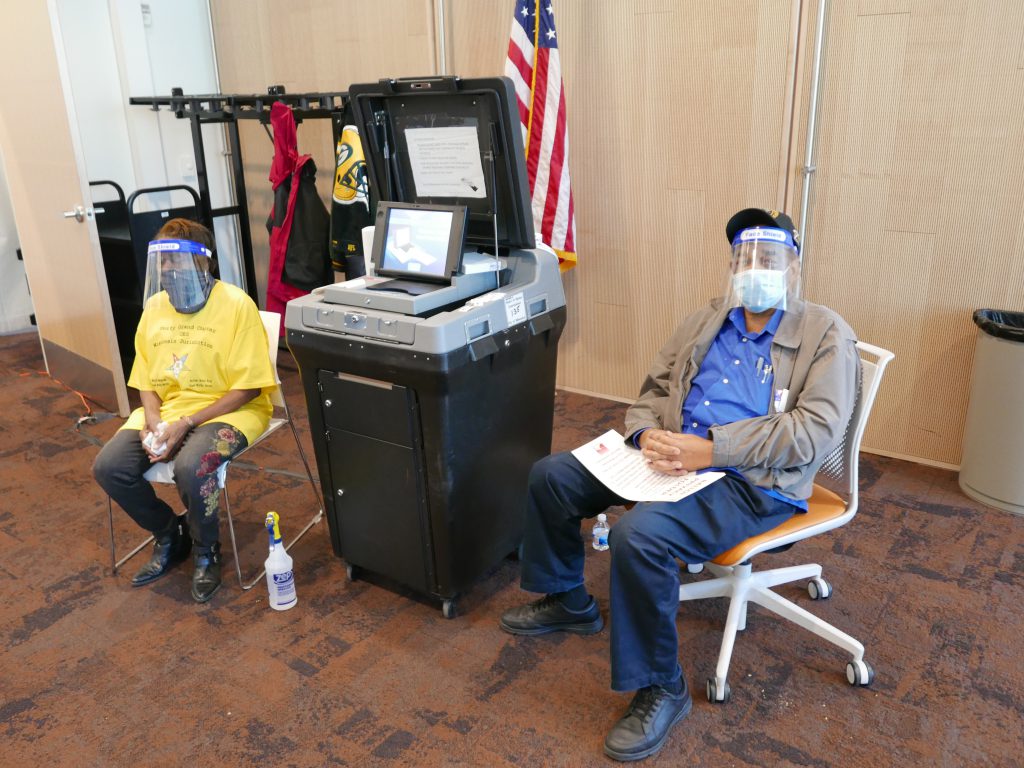How Will Legislature Investigate Election?
And will legislators subpoena election clerks, using this power for first time in more than 40 years?
State Senate and Assembly committees overseeing election laws will hold a joint session this week on how Wisconsin’s record 3.2 million votes for President were cast and counted on Nov. 3-4.
It’s a good idea, if legislators focus on the process — and if Republicans who run the committees don’t dominate that session by inventing theories of how Democrat and former Vice-President Joe Biden didn’t really win the statewide vote by an unofficial margin of about 20,500 votes.
That was a winning margin of 0.6% of the record 3.2 million votes cast — the same razor-thin percentage by which President Donald Trump won Wisconsin in 2016..
Besides Trump’s loss in Wisconsin, two Assembly Republicans from suburban Milwaukee lost re-election bids. Republicans will still control the Assembly by a 61-38 margin. Senate Republicans picked up two seats, giving them 21-12 control in the session that starts in January.
Subpoenas shouldn’t be required. Why? Because Wisconsin’s army of local election officials — 1,850 of them, the most of any state — are eager to talk about how they managed to run an election in a pandemic, in such a bitterly divided state and in a year when they had to process a record 1.9 million absentee ballots cast by mail, at dropoff sites or in person. Election clerks should flock to the Capitol to brag about pulling off an election under those circumstances, instead of being legally summoned and second guessed.
The 1,850 local clerks worked selflessly and tirelessly to oversee an “incredibly meticulous process,” State Elections Administrator Meagan Wolfe said. “While the results are still unofficial and are currently being triple-checked… we have not seen any credible information to cast any doubt on those unofficial results.”
Milwaukee Elections Commission Director Claire Woodall-Vogg, for example, said she is “more than willing to…shed great light on the open and transparent nature of our election operations.”
Another reason why subpoenas may not be issued: The chairman of the Senate Elections, Ethics and Rural Issues Committee is Republican Sen. Kathy Bernier, who spent 12 years as the clerk — and top elections official — in Chippewa County. Will Bernier, up for re-election in two years, sign subpoenas forcing local elections clerks she once worked with to come to the Capitol to be interrogated about voting fraud? Don’t bet on it.
Republican Rep. Joe Sanfelippo, a member of the Assembly Elections and Campaigns Committee, issued a statement raising these questions about vote fraud:
-”The Wisconsin Election Commission ignored state law and refused to deactivate the eligibility of more than 230,000 unverified names on the voter list.” A federal count upheld the commission’s decision on whether to delist those voters – so-called “movers” who didn’t respond to postcards mailed to their last address. The case is now pending before the state Supreme Court.
-”Clerks in Milwaukee and Dane Counties colluded [adding] nearly 250,000 individuals to the ‘indefinitely confined’ voter list.” The hearing will explore when rules allow a voter to affirm that they are “indefinitely confined” — an allowance Republicans made when they required a photo ID to vote.
-*”Officials in Madison defied state law confirmed by a court ruling and began early voting weeks ahead of the time allowed by law.” Madison officials insist their collections of absentee ballots in city parks were legal.
Fair questions, Joe. Ask them at the hearing.
Steven Walters is a senior producer for the nonprofit public affairs channel WisconsinEye. Contact him at stevenscotwalters@gmail.com
If you think stories like this are important, become a member of Urban Milwaukee and help support real, independent journalism. Plus you get some cool added benefits.
More about the 2020 General Election
- Senator Agard Statement on Senator Knodl’s Continued Relitigation of the 2020 Presidential Election - Dane County Executive Melissa Agard - Aug 29th, 2023
- Report Calls For Criminally Charging State’s Fake Electors - Henry Redman - Dec 19th, 2022
- Vos Withdraws Subpoenas, Ends Gableman Probe - Henry Redman - Aug 30th, 2022
- Judge Blasts Gableman Probe, Deleted Records - Henry Redman - Aug 17th, 2022
- Vos Fires Gableman, Ends Election Probe - Shawn Johnson - Aug 14th, 2022
- Judge Orders Gableman To Pay $163,000 In Legal Fees - Rich Kremer - Aug 2nd, 2022
- Prosecute 2020 Fake Electors, Advocates Demand - Erik Gunn - Aug 1st, 2022
- Trump Calls For Nullification of Wisconsin’s 2020 Election - Henry Redman - Jul 12th, 2022
- Legal Fight Over Gableman Probe Keeps Growing - Shawn Johnson - Jun 30th, 2022
- Back In the News: Fake Elector Scheme Dogs Ron Johnson - Bruce Murphy - Jun 28th, 2022
Read more about 2020 General Election here
The State of Politics
-
A Wisconsin Political Trivia Quiz
 Dec 15th, 2025 by Steven Walters
Dec 15th, 2025 by Steven Walters
-
The Fight Over Wisconsin’s House Districts
 Dec 8th, 2025 by Steven Walters
Dec 8th, 2025 by Steven Walters
-
The Battle Over On-Line Betting
 Nov 24th, 2025 by Steven Walters
Nov 24th, 2025 by Steven Walters






















